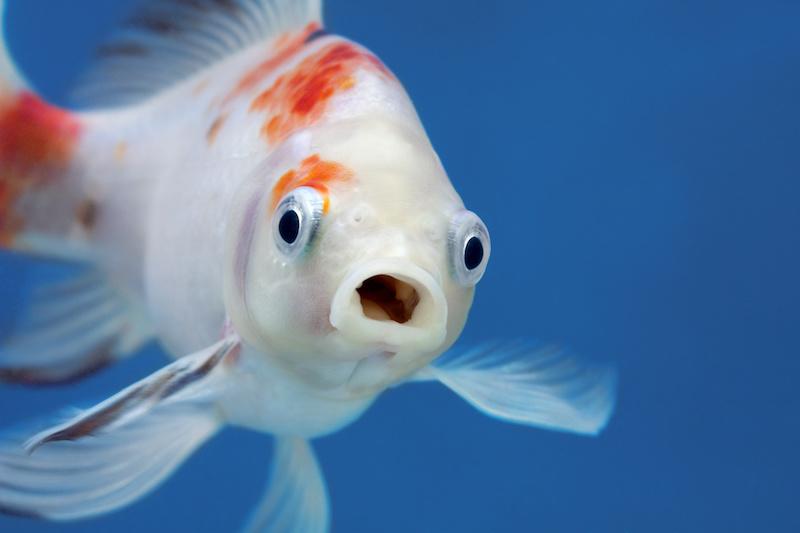All About Fish!
Dive into the fascinating and diverse world of fish! All About Fish: An Intro to Ichthyology takes students on a journey through the natural history, biology, and conservation of fish to better understand and appreciate the importance of sustainability and habitat preservation. Students will uncover a broader understanding of both fresh and saltwater species, including taking a deeper look at the unique migration and life cycles of diadromous fish as they migrate their way either to freshwater or saltwater.
|
Course Name: All About Fish: An Intro to Ichthyology |
|
|
Course Number: EDUC 718Q |
Semester Credits: 3 |
Course Description
This course is an introduction to the fascinating and diverse world of fish. With over 21,000 species, there is no other group of vertebrates where you will find such a diversity of body forms and colors, so many peculiar ways of making a living, or even so many bizarre ways of reproducing. For over 400 million years, fish have been filling all the aquatic habitats from the bottom of the ocean to the headwaters of mountain streams. Ranging in size from a few mm to over 10 meters, they offer an amazing array of forms and functions and are vital as food for millions of people.
However, fish species are going extinct, especially freshwater species, many other species are endangered or threatened, and most commercial species are overfished. Thus, the future of many species is bleak suggesting the need for a broader understanding of the importance of fish as a vital source of food/protein, as major trophic players in all aquatic ecosystems, as the “canaries” of the ocean, and as the major transporter of nutrients/biomass back to impoverished watersheds. Commercial and recreational fishing industries, diving and snorkel travel, hobby, and commercial aquariums are all driven to various extents by the uniqueness and allure of fish. The purpose of this course is to introduce students to the natural history, biology, and conservation of fish, so they know why fish are important, and they understand the need for habitat preservation and sustainable catches.
Goals
- Learn the general biology of fish: anatomy, physiology, behavior, reproduction, and sensory systems.
- Learn about the adaptations needed to live in an aquatic environment
- Learn the various types of fishes, where they are found, and what distinguishes the different classes and families
- Learn the differences and similarities of fresh water and marine fish species
- Learn the different feeding and reproductive modes of fish.
- Learn why fish migrate and the importance of schooling
- Learn about the number of fish that are threatened or endangered
- Learn about the destructive impacts associated with introduced species.
- Learn about the threat of pollution and the need for conservation and sustainability of fisheries.
Course Contents
- Introduction to fish
- Fish From the Outside
- Fish From the Inside
- Behavior
- Diversity
- Ecology
- Trout Streams
- Warm water Streams
- Lakes and Reservoirs
- Ponds
- Estuaries
- Between the Tides
- The Continental Shelf and Beyond
- Tropical Reefs
- Conservation
- Resources for the Aquatic Naturalist
Evidence of Learning Outcomes
Upon completing All About Fish: An Intro to Ichthyology, the student will have demonstrated knowledge of fish biology, anatomy, natural history, ecology, and the various aquatic habitats and the types of fishes found in them. Students will research and develop some of the reasons fish are important to humans and develop a lesson plan related to conservation status and sustainability of local endangered fish species.
How to Register
Are you ready to dive into the fascinating world of All About Fish: An Intro to Ichthyology? Students can complete this three-semester credit course online or via an emailed PDF format. All books and materials are mailed to the student regardless of the format selected. Like all courses offered through Professional Development Courses at the University of La Verne, this course features online chat support and quick grading turnaround times. This course is open for registration at any time during each semester. Upon completion, students receive graduate, non-degree semester credit on official transcripts from the University of La Verne, an accredited university in La Verne, California.
Registration is simple and can be done online or over the phone. Courses are available on a rolling basis during three standard semesters, and you can begin whenever you are ready! Students may enroll in up to a maximum of 15-semester credits at any time during each semester.
The registration dates are:
Fall: September 1 – January 31
Spring: February 1 – May 31
Summer: June 1 – August 31
